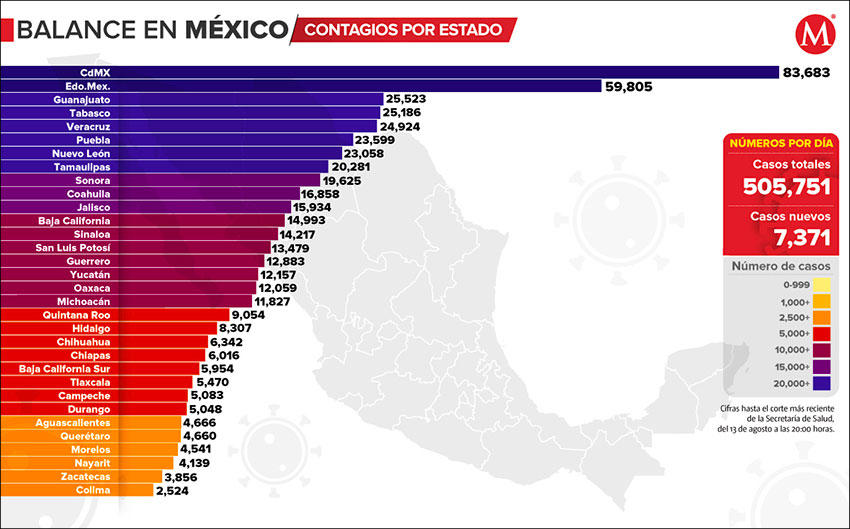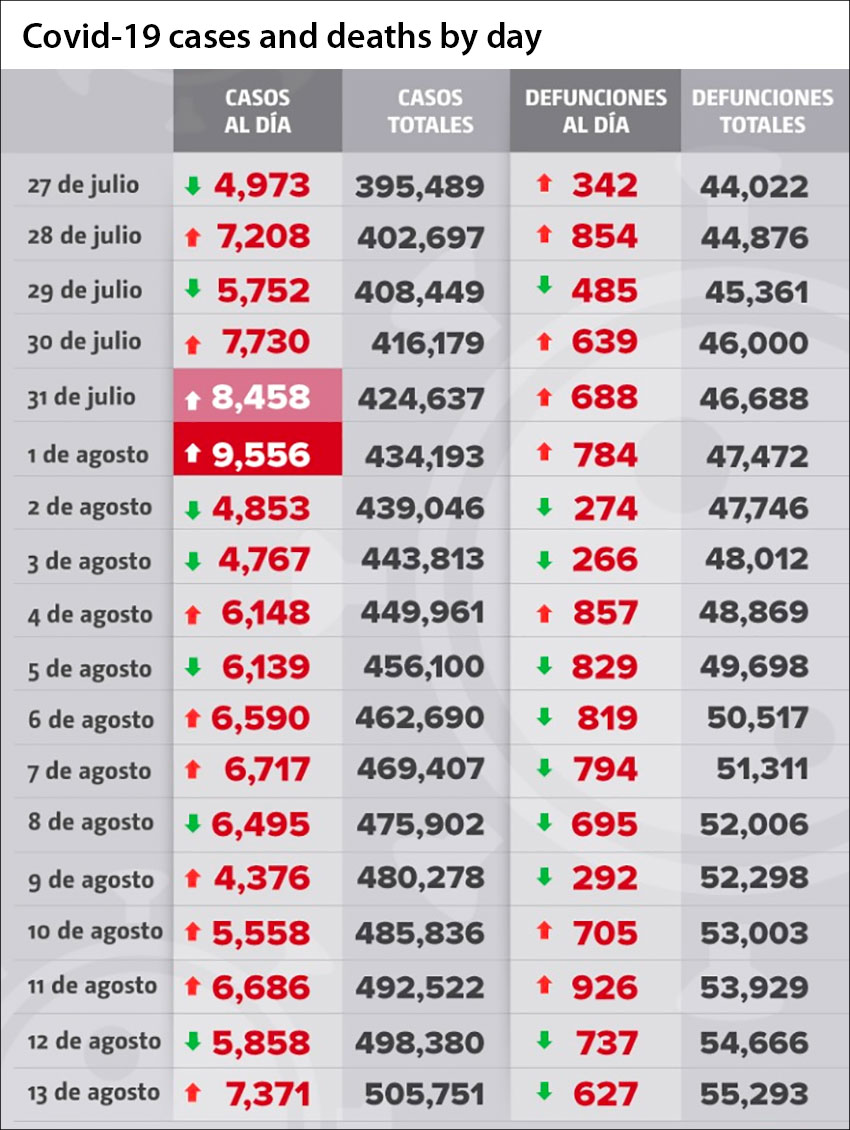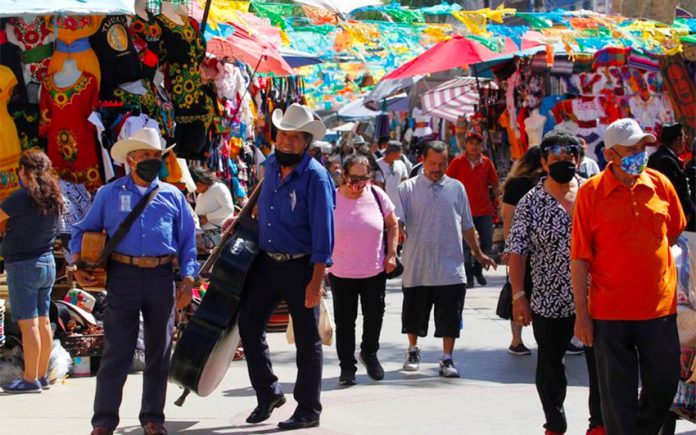July was Mexico’s worst month yet for new cases of the coronavirus with an average of 6,404 reported every day.
El Universal reported that 198,548 new infections occurred in July, the equivalent of 266 people testing positive for Covid-19 every hour.
Case numbers set new daily records on four days during the month. On July 18, 7,615 new cases were reported followed by 8,438 on July 23. July 30 saw numbers surge by 7,730, and on July 31 there were 8,458 new cases.
The Ministry of Health said the surges in cases were due to the way information was uploaded to government platforms and didn’t reflect the actual number of new cases recorded each day.
So far August case numbers are slightly below those of July. During the first 13 days, 81,114 new infections were recorded with a record-breaking 9,556 occurring on August 1 alone. The daily average has been 6,239, a couple of hundred below July’s figures.

Several experts say the spike in numbers over the past two months is a consequence of the easing of stay-at-home measures that occurred in mid-June.
For Malaquías López Cervantes of the National Autonomous University’s (UNAM) faculty of medicine, the correlation between the end of lockdown and a surge in cases in deaths is logical. The country, he says, was simply reopened too early.
“The population took few precautions because they were given poor instructions, masks were ignored and it was said that they should leave their homes without fear,” he said. “There are consequences. Transmission has intensified.”
López says the government chose the recovery of the economy over recovery from the pandemic.
“I think the economy has been favored and the importance of health has been neglected, and that is leading to very bad results.”
Because some improvement has been seen in Mexico City and some other locations, he said, it is assumed that the situation is easing, which is not the case.

“Infections are moving to other places perhaps [because] they have less geopolitical visibility.”
Alejandro Macías, a member of UNAM’s coronavirus commission and a frequent critic of the federal government’s coronavirus strategy, agrees that high infection rates are spreading to other regions of the country with similar intensity to the virus’s initial growth in Mexico City.
“Now that Monterrey, Guadalajara, parts of the Bajío and other cities are added, the epidemic will come to the entire republic,” he said
Rodolfo de la Torre, director of social development at the Espinosa Yglesias think tank, observed that the handling of the pandemic has strayed from its original goal, and the federal government should reconsider its strategy.
“It seems that the objective was lost, which was to reduce infections and deaths. The authorities underestimated the population’s vulnerability to infection and death,” he says. Mexico’s health system was weak from the onset, testing has been inadequate and the use of masks has not been emphasized enough.
UNAM’s López took Deputy Health Minister Hugo López-Gatell to task for not making masks mandatory.
“The deputy minister talks about not forcing Mexicans to wear face masks, but I think that more pressure should be put on the population. What [he] says is silly, because it seems that he defends the right to infect,” he said. “In an extraordinary situation rights have to be adapted to protect the population as much as possible.”
López-Gatell criticized lawmakers in Colima this week for proposing stiff punishments for not wearing a face mask, warning that such measures could lead to human rights abuses by authorities and social tension among citizens.
There were 7,371 new cases reported on Thursday, bringing the total to 505,751. The day’s death tally was 627; the accumulated total is now 55,293.
Source: El Universal (sp)
